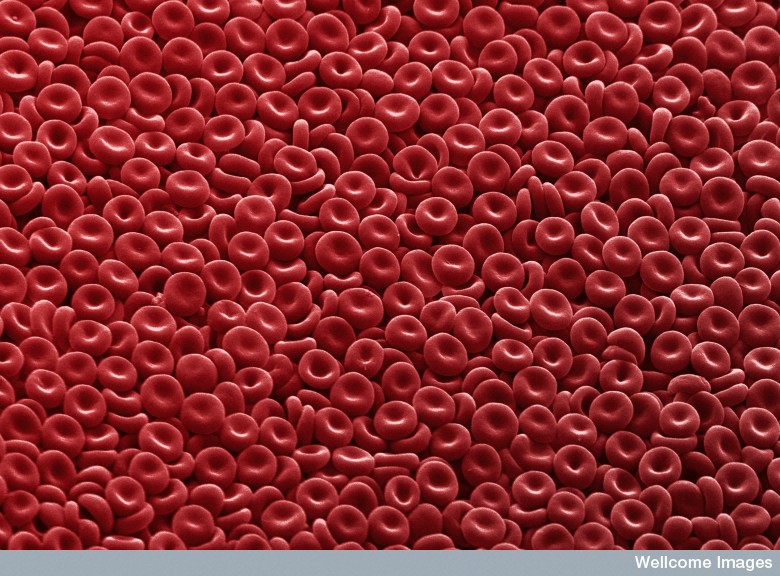Sorry for a quick refresh in biology. But this was flowing around in my mind this week during a run…
The body is such an amazing miracle. 30 years ago in college in a moment of being so utterly impressed wrote this phrase in my notes; “infinite complexity in simple harmony.” Nearly all of the body’s regulation systems are based on retaining concentration of a hormone, protein, sugar or some other molecule. When blood sugar concentration in the blood is up, then more sugar is pulled into fat building cells. When blood sugar concentration in the blood is down, then sugar is pulled out of fat cells.
Our lives absolutely rely on our red blood cells’ ability to absorb oxygen and let go of carbon dioxide. BUT to also absorb carbon dioxide and let go of oxygen. When that red blood cell arrives in the lungs, it needs to freely let go of carbon dioxide and quickly grab oxygen. But that same cell must act opposite as it travels through the capillaries around our muscles in deliver the life needed oxygen and grab the waste-byproduct carbon dioxide. This efficient transfer is critical to every moment of our life.

One of the ways the body manages this transfer it to create more red blood cells when the atmospheric pressure is low (heading up a mountain). Or, if you live at high altitude and move down to sea level, the body ends up reducing unnecessary red blood cells.
While having more (or less) red blood cells helps the body be more efficient, the cells themselves must also be ‘tuned’ to adapt and work efficiently to hold and release oxygen at changing oxygen pressures. It takes the body many weeks to significantly adjust red blood cell concentrations. But also takes a few days for the body to fine-tune red blood cells’ ability to hold and release at new atmospheric pressures.
Pretty cool right? These big (or small) swings in pH, oxygen pressure, blood sugar and countless other factors are buffered by the body adapting and maintain balance. The human body is such a miracle!
So, I’m running along thinking about red blood cells and the importance of fine lines and balance and I started thinking about other things in life that are split with such a fine line. The biggest that came to mind is MOTIVATION.
WHY ARE YOU DOING WHAT YOU ARE DOING?
You’ve heard the saying – it’s not what you do, but how you do it. Or, it’s not what you say, but how you say it. I’m going to take that a bit further and say… it’s WHY you do it.
If you decide to spank your child (think back to if/when you might have been spanked). I’m not judging, I think most children could use a few more spankings… WHY are you spanking the child? Is it because you are angry about what they did? Or, is it a thoughtful measured approach to provide feedback and correct bad behavior? Sadly, as parents, we often react in anger or frustration an not consider what’s truly best for the child.
If/when you decide to give your employee critical feedback. WHY are you doing it? Is the motive truly to help that employee or to avoid embarrassment or anger you felt when s/he represented you and the team poorly? It’s helpful to remember that almost none of ‘traditional’ feedback this works. Advice after poor performance isn’t nearly as helpful as positive feedback after good/great performance. And, if advice is truly needed, it’s best delivered just BEFORE then next time someone has the opportunity to practice or demonstrate that behavior. So, if you’re truly doing it to help them. Do both of you a favor and follow best practices and give positive feedback just after something is done right, and advice before the next opportunity to practice.
The last example I want to mention is the motivation behind goals and goal setting. For me, this might be the most meaningful example.
My career has been centered around purchasing. In purchasing we are known for saving money. I think everyone would agree that saving money is basically good. But if my goal is simply to demonstrate the value of my work and my success. Then, it’s easy to get out of sync with the business I’m serving.
Imagine the difference between a goal to save $100M that my team and I are working to achieve.
In one scenario, my boss, myself or my team decide to save the $100M.
In another scenario, my team and I meet with the business we serve. We learn their goals and priorities and design our goals to directly contribute to the success of the business. It turns out that the combined group of departments need to save $100M.
In both cases, we have a goal of $100M. In both cases, much of the work we approach will be the same. But clearly the second scenario has more power for success and the good of the business. The first scenario will likely hurt my relationship and influence with business leaders. While the second scenario will likely grow my relationship and influence with business leaders.
I’ll be the first to admit that it’s not often that scenario one and two would lead to exactly the same goals and actions. But, that’s exactly the point. The business might need more speed while I’m slowing things down. The business might need more quality while my effort to cut cost is making it impossible for the supplier to invest and solve quality problems.
Bottom line – unless I understand what my customers need, it’s unlikely I’ll deliver what they really need. And, unless I’m truly helping my customer, then there’s a good chance I’m detracting from their success and what really matters to their business. In that case, they are truly better off without me. That’s a pretty sad reality. But it exists more often in business than we’d like to admit.
What about your personal goals.
We are the product of what we do (actions). Our actions are guided by our thoughts. Our thoughts are guided by our values and beliefs.
So, if you are trying to lose weight, exercise, learn a language … and you seek to make those changes by only going as deep as your actions. Then it’s unlikely you will successfully sustain that behavior long enough to make significant or lasting progress.
You may be eating less food, avoiding bad foods, even exercising or investing time each day to study a language. But underneath, you might truly think and believe that life isn’t fair. It should be easier for you. Or, maybe the change you are seeking doesn’t matter. Maybe you’re just doing it for someone else. Those thoughts and underlying beliefs will eventually undermine your ability to implement lasting change in your life.
As an example, while investing massive effort to the contrary. You may believe that healthy food tastes bad. Or exercise isn’t fun and generally painful. You may believe that you’re too old, or it’s simply too hard to learn a new language.
On the surface, behaviors can look the same… they can even be the same. But unless the underlying beliefs and motivations are changed to support the life changes you are tying to make, they will almost never be successful. Some people say – fake it until you make it. I’m not opposed to that approach, but it must be supported by changing the underlying values, beliefs and thoughts. You can’t fake the values and beliefs forever – eventually what you really believe will attack the false beliefs and undermine your new behavior.
There’s a fine line between so many things in life – and that fine line makes all the difference.
Make sure you’re on the right side of that line.
